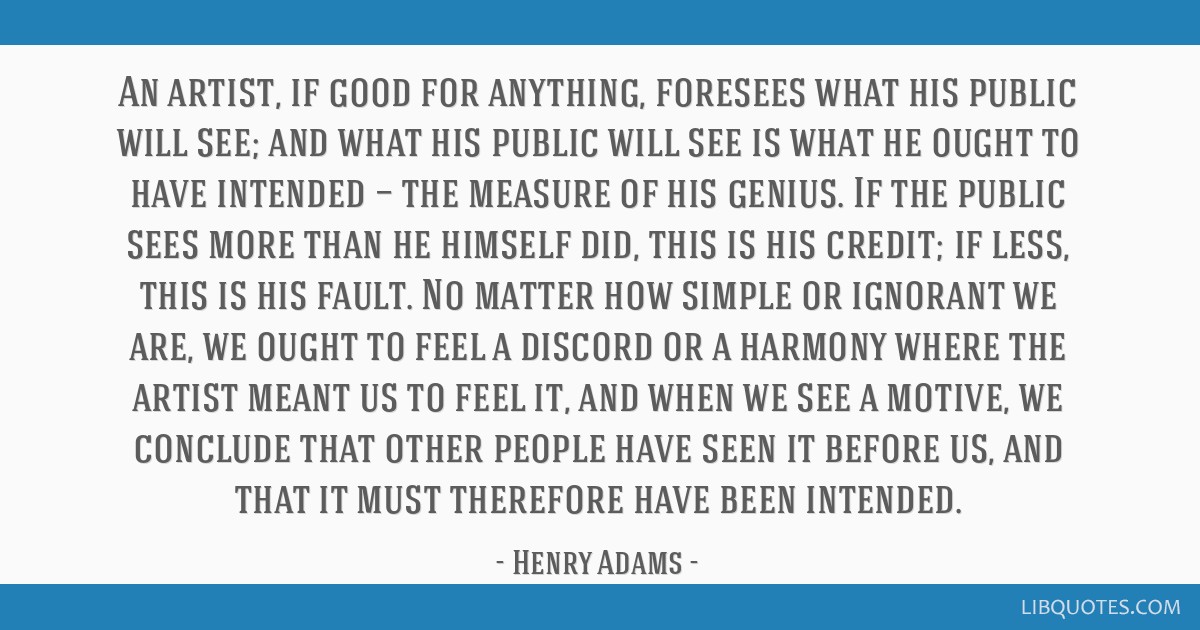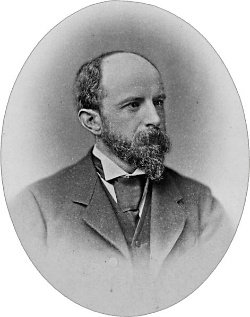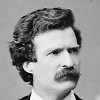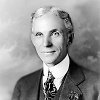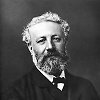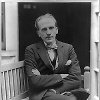An artist, if good for anything, foresees what his public will see; and what his public will see is what he ought to have intended — the measure of his genius. If the public sees more than he himself did, this is his credit; if less, this is his fault. No matter how simple or ignorant we are, we ought to feel a discord or a harmony where the artist meant us to feel it, and when we see a motive, we conclude that other people have seen it before us, and that it must therefore have been intended.
Mont Saint Michel and Chartres (1904)
